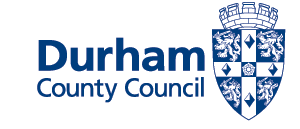How to identify and treat undernutrition in older person's care home
Delivered in partnership with the Nutrition and Dietetic Service at County Durham and Darlington NHS Foundation Trust (CDDFT). This training will teach you how to identify and treat undernutrition when working with individuals in an older person's care home.
This specialist training is recommended for all staff involved with any aspect of the provision of nutrition and hydration. This includes managers, nurses, senior carers, care assistants, housekeepers and catering staff. It is recommended staff will discuss and develop this work with their line manager.
Learning method
This course is an online pre-recorded webinar, followed by an assessment. It will take you approximately three hours to complete.
What you will learn
By completing this course, you will gain knowledge of planning a nutritionally balanced menu for older people based on nutritional recommendations.
You will cover:
- What is undernutrition.
- How to identify undernutrition including:
- using 'MUST' to determine risk of undernutrition
- how to determine height from ulna
- how to determine weight change from mid upper arm circumference (MUAC)
- How to treat undernutrition, including:
- Food based treatments (nourishing snacks & drinks, fortified diets)
- Appropriate use and monitoring of prescribed nutritional supplements
- Appropriate referral to a dietitian
- The importance of hydration.
- Nutrition related documentation, including:
- The development and reviewing of nutrition care plans
- Good practice guidance for monitoring food and fluid intakes
Benefits
- Have a working knowledge of how to identify and treat undernutrition in an older person's care home.
- Certificate following successful completion.
- As a result of the improved skills and knowledge of healthcare staff, care homes have seen the following benefits:
- Improved resident well being
- Improved resident satisfaction with food based treatments
- Improved weights for residents at risk of undernutrition
- Reduction in the prevalence of undernutrition
- 50% reduction in pressure ulcers
- Improved care home documentation through:
- Improved accuracy of screening for undernutrition using the FOU 'MUST' nutritional screening tool
- Nutritional care planning
- Food and fluid monitoring charts
- Improve patient safety through:
- Reduced GP/healthcare visits and hospital admissions
- Improved clinical outcomes, such as pressure sores, falls
- Reduced prescribing of nutritional supplements
- Fulfilment of CQC regulation requirements and other national requirements.
- Improved team building and has improved working relationships between catering and healthcare staff through setting common goals and objectives linked to nutritional care.
- Improved staff motivation and confidence in nutritional care through the acquisition of new knowledge and skills.
How to book
To book this course, please Contact County Durham Care Academy.

 Share this page on Facebook
Share this page on Facebook
 Share this page on Twitter
Share this page on Twitter
 Print this page
Print this page





